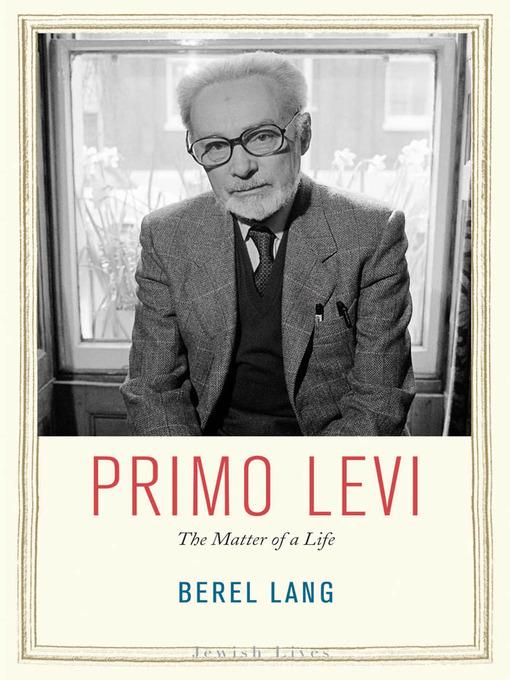
Primo Levi
The Matter of a Life
کتاب های مرتبط
- اطلاعات
- نقد و بررسی
- دیدگاه کاربران
نقد و بررسی

October 15, 2013
The life of celebrated essayist, novelist, poet and Holocaust survivor Primo Levi (1919-1987), told in swift succinctness by the author of such philosophical and historical works as Philosophical Witnessing: The Holocaust as Presence (2009). Lang (Emeritus, Philosophy/SUNY, Albany) approaches this entry in the publisher's Jewish Lives series from a variety of perspectives. He presents the facts of Levi's life but also looks closely at his writings, philosophy and identity as a Jew. Lang organizes his text in a way both playful and educative: His first chapter is "The End," and the preface comes at the end. The author begins with the controversy surrounding Levi's death--suicide or no? (Lang says yes.) Then he carries us back to 1943 and Levi's arrest by the Nazis in Italy and his transport to Auschwitz. Lang offers some Italian history and notes that the tiny Jewish population of Italy tended to support Mussolini--at first. After the war, Levi began writing, and Lang takes us through several of the works, observing that Levi had admired the writing of Jack London and that his relationship with Elie Wiesel was uneasy. He continually reminds us of Levi's education as a chemist and the jobs in the chemical industry he held. He shows the considerable influence of chemical training on Levi's The Periodic Table (1975). A tricky chapter is the one he devotes to Levi's Jewishness. The author argues that Levi's later contention that the Holocaust accentuated that identity is a bit disingenuous: Levi was immersed in the Jewish secular world before the war. He'd been an early supporter of Zionism but not for himself. Lang's philosophical bent emerges clearly in his chapter about Levi's thought, and he discusses five aspects of it, including thoughts about human nature, justice and God. A sketch of the writer, but one with crisp lines and sure-handed strokes.
COPYRIGHT(2013) Kirkus Reviews, ALL RIGHTS RESERVED.

November 15, 2013
Lang (emeritus, philosophy, State Univ. of New York, Albany; Act and Idea in the Nazi Genocide) presents a new biography of Italian Jewish author Primo Michele Levi (1919-87), who earned a degree in chemistry and worked as a chemist but became a writer after World War II when he survived his deportation and 11-month imprisonment in Auschwitz. Lang explains that Levi began with no writing ambitions or literary design but instead felt the need to write about his time in the concentration camp--a spontaneous rather than intended literary exercise. For Lang, Levi's strength as a philosopher was his ability to reflect on the horrible events he lived through and use them to try to understand such philosophical concepts as goodness, evil, and human nature. VERDICT Lang does a fantastic job of combining events in Levi's life with his development as a writer. Readers who are familiar with the philosopher's work as well as newcomers will find this biography an illuminating look into his life.--Scott Duimstra, Capital Area Dist. Lib., Lansing, MI
Copyright 2013 Library Journal, LLC Used with permission.

























دیدگاه کاربران